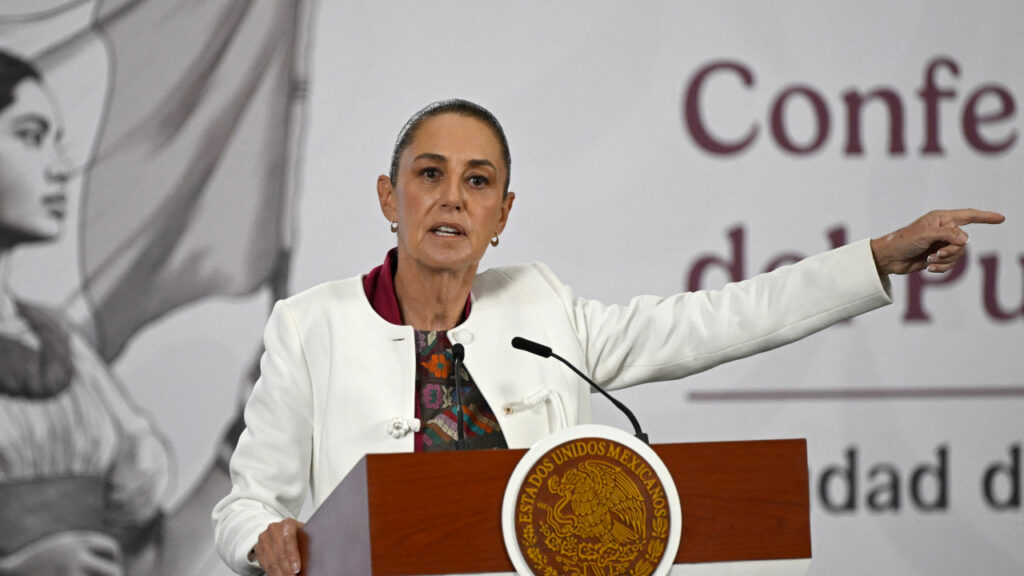
‘Forced Expatriates’: What Happens When U.S. Citizen Children Get Deported
It sounds like a bureaucratic glitch, but for many families, it’s a life-altering crisis. U.S. citizen children deported alongside their undocumented mothers are facing a harsh truth: coming back to their home country isn’t as simple as officials make it sound.
While the law says these kids have the right to return, immigration lawyers and civil rights advocates say the reality is far messier. And way more dangerous for the children caught in the middle.
The government says they “chose” to leave. Their lawyers say otherwise
After facing public outrage over deportations of minors, including kids with cancer and recovering from brain tumors, the Trump administration stood by its actions. On Meet the Press, Secretary of State Marco Rubio said, “If those children are U.S. citizens, they can come back… if there’s their father or someone here who wants to assume them.”
But attorneys working directly with these families called that framing “willfully misleading.” Sirine Shebaya, executive director of the National Immigration Project, told PBS NewsHour that the mothers “did not request their children to be deported with them.” In fact, she said they were denied phone access to family members or attorneys. They never had a real choice.
In one case, the government deported a two-year-old U.S. citizen known as VML with her mother to Honduras. A federal judge later said they had a “strong suspicion that the government just deported a U.S. citizen with no meaningful process,” PBS reported.
For U.S. citizen children deported, returning isn’t just about a passport
Technically, U.S. citizen children can return to the United States. But according to immigration advocates interviewed by NBC News, that’s a legal right that’s meaningless without the resources and paperwork to actually do it.
Mich P. González of Sanctuary of the South explained that ICE often confiscates passports and ID during deportation. In one case, immigration agents took a toddler’s passport and only returned it once she was already in Honduras. Without a valid passport or original birth certificate, getting back into the U.S. becomes a bureaucratic nightmare.
And even if a child has the correct documents? They still need a U.S. citizen guardian who’s willing—and able—to fly abroad, retrieve them, and legally re-enter the country. In today’s immigration climate, that trip could put even lawful residents at risk. “You can risk being stranded outside the United States,” González told NBC News.
Let’s talk about the trauma of being “forcibly expatriated”
Attorney Naiara Leite Da Silva, who represents Denisse Parra Vargas and her three kids—two of whom are U.S. citizens—told NBC that the idea that the mother “chose” to take her children is false. Parra Vargas believed she was going to an asylum interview to get work authorization. Instead, ICE deported and separated her from legal-resident relatives who were waiting in the parking lot and willing to care for the children.
“These are forced expatriates,” said Da Silva.
Rochelle Garza, chair of the U.S. Commission on Civil Rights, also called out the government’s lack of accountability. “We should not be asking kids to do something like that,” she said. “Think about yourself when you were 11… would that be feasible for you?”
Life after deportation isn’t easy—or safe—for these kids
Researchers who have studied the phenomenon of “de facto deportation” say the effects last long after the flight lands. Erin Hamilton of UC Davis found that U.S.-born kids deported to countries like Mexico are less likely to attend school and more likely to live without health insurance. Language barriers, documentation issues, and poverty compound the trauma.
In Mexico, for example, enrolling in school can take a very long time due to the need for certified documentation proving Mexican citizenship, a process that can take months. “They’re not just removed from their country,” Victor Zúñiga González of the Universidad Autónoma de Nuevo León told NBC. “They’re removed from opportunities.”
A policy problem with human consequences
Many of the recent deportations stem from executive orders signed by President Trump during his second term. According to PBS, some parents were tricked into ICE appointments under the false promise of work permits, only to be deported within 24 hours. Others were denied legal representation entirely.
“It’s a form of family separation,” Shebaya said.
And in a chilling twist, NBC reported that the administration now offers deported immigrants $1,000 and a free flight—if they agree to leave using the official app. Critics say that’s not compassion; it’s coercion.




